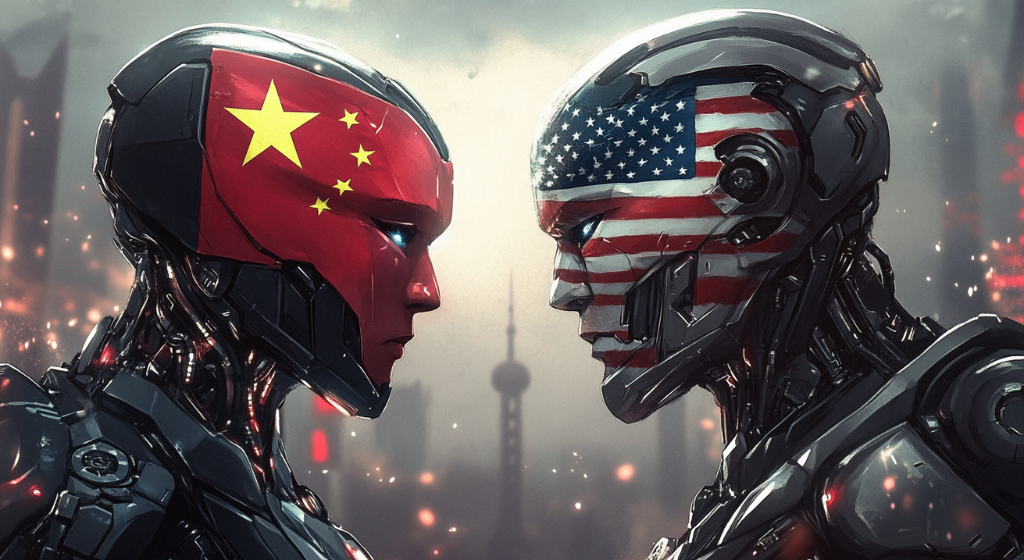
DeepSeek’s rapid advancements in AI have reignited concerns over U.S.-China technological competition, highlighting the critical role of export controls in maintaining American AI leadership and preventing China from gaining a strategic edge in artificial intelligence. (Source: Image by RR)
The U.S. Faces a Choice: Strengthen Export Controls or Risk Losing AI Leadership
The rise of DeepSeek, a Chinese AI company that has developed models approaching the performance of U.S. frontier AI systems at a lower cost, has reignited discussions about U.S. export controls on semiconductor chips. While some have questioned whether DeepSeek’s advances indicate a failure of these controls, others argue that they highlight the importance of restricting China’s access to cutting-edge AI hardware. Export controls are not about avoiding competition but about ensuring that democratic nations maintain leadership in AI development without inadvertently strengthening the technological capabilities of the Chinese government. As AI companies in the U.S. and other allied nations continue to refine their models, policymakers see export restrictions as a crucial tool to shape the future balance of global AI power.
As noted in darioamodei.com, AI development follows three major dynamics: scaling laws, where larger AI training investments yield increasingly advanced capabilities; shifting the curve, where algorithmic and hardware innovations improve efficiency, allowing AI models to perform better at lower costs; and shifting the paradigm, where breakthroughs such as reinforcement learning introduce new training methods that significantly enhance AI reasoning abilities. DeepSeek’s progress, particularly with its pretrained DeepSeek-V3 model and its reinforcement learning-based R1 model, reflects these dynamics. While DeepSeek’s achievements are notable, they do not fundamentally alter the economic trends in AI development—U.S. companies are expected to continue reducing costs and improving performance at similar rates.
DeepSeek’s ability to train competitive AI models does not mean that China can indefinitely acquire the necessary computing power through smuggling or workarounds. The company reportedly operates a fleet of around 50,000 AI chips, including H100s (which are banned under current export controls), H800s (banned since October 2023), and H20s (which remain legal but could be restricted in the future). This suggests that while some chips may have been smuggled, much of DeepSeek’s AI infrastructure was obtained before stricter regulations were enforced. The evolving nature of export controls has already closed loopholes, and continued enforcement could prevent China from amassing the millions of chips required to train AI models surpassing human intelligence.
The geopolitical implications of AI advancement are stark: by 2026-2027, the world could either be bipolar, with both the U.S. and China possessing highly advanced AI models, or unipolar, with the U.S. and its allies maintaining a decisive lead. In a bipolar world, China could leverage AI for military and industrial dominance, potentially shifting the global balance of power. In contrast, a unipolar world—where export controls effectively limit China’s AI capabilities—could allow the U.S. to establish a long-term technological advantage. While DeepSeek researchers may not be adversaries themselves, they operate under an authoritarian regime with a history of human rights violations and aggressive geopolitical actions. Ensuring U.S. leadership in AI requires maintaining and strengthening export controls, as allowing AI advancements to accelerate without restriction could have profound consequences for global security.
read more at darioamodei.com







Leave A Comment